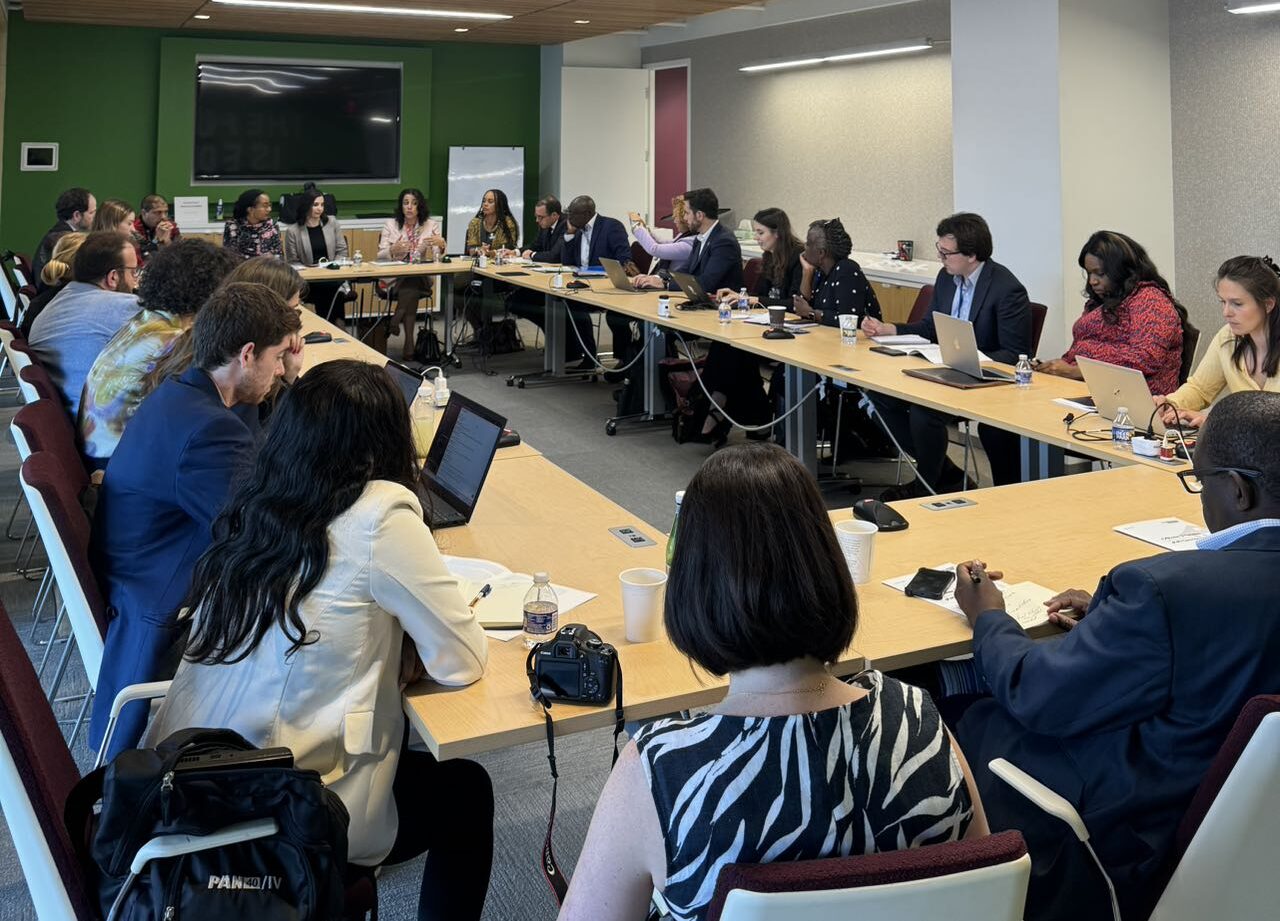During the 2024 World Bank/IMF Spring Meetings in Washington DC, the Development Reimagined team hosted a panel discussion with Boston University’s Global Development Policy Center (GDPC) on “Reimagining the IMF Quota System for Africa”, on 18th April 2024.
This event came at a critical juncture in the discussion around quota reform, while also creating space for a new conversation and positioning by African governments.
Every five years the IMF board conducts general quota reviews with the most recent (16th) IMF quota review concluding in December 2023. Although there was a 50% proportional increase in quotas for all members, there were no changes to the quota formula or quota distribution. The IMF Board of Governors will engage in the 17th General Review of Quotas by June 2025 but ahead of that member states are required to provide their views and consent by November 15th 2024.
As IMF quotas are distributed to member states based on the size of their economies, low-income countries, in particular, African countries receive a very small portion of the quota pie. In fact, AU member states altogether receive just 5.2% of total IMF quotas.
The panel discussion had a great lineup of African and non-African leaders, experts, and development finance professionals. The session was moderated by Mr. Omar Ben Yedder, Editor-in-Chief of African Business.
Panelists included:
- Dr. Hanan Morsy, Deputy Executive Secretary and Chief Economist at the UNECA
- Dr. Daouda Sembene, Founder and CEO at AfriCatalyst
- Ms. Lara Merling Non-Resident Research Fellow at Boston University GDPC
- Ms. Hannah Ryder, CEO of Development Reimagined
- Ms. Fati N’Zi-Hassane, Oxfam’s Africa Director
- Mr. Jason Braganza, Executive Director of the African Forum and Network on Debt and Development (AFRODAD).
Closing remarks were provided by Mr. Paulo Gomes, Chairman of the Orango Investment Corporation.
Panelists, in particular Ms. Merling, explained the colonial roots of the quota system, as quota shares were decided during a time when several African countries were still under colonial rule, with some African countries having less quota shares today than they did 80 years ago. Dr. Morsy stressed that due to the unfair distribution of quotas African countries have low representation and voice in decision-making and limitations to access to capital. She emphasized the need to change the quota formula which currently focuses on the economic and financial size and strength of countries to include other variables such as vulnerability of exposure to be able to get additional resources. Dr. Morsy also spoke about how the IMF does not reflect the new global order which will result in parallel systems being formed, causing institutions such as the World Bank and IMF to lose their relevance. Mr. Braganza stressed the geopolitical tensions between the US and China that arise with discussions around quota reform and the obstacles that come with these tensions for African countries. Mr. Braganza also spoke about the need to discuss alternatives where the future of macroeconomic stability surveillance and governance does not rely on the IMF. We need to focus on other elements like fixing the trade architecture. Ms. Ryder emphasized the need to have one common position, a simple ask, and having a few key African leaders backing it. Ms. N’Zi Hassane spoke about being pragmatic in our approach and shifting our focus from the US’s veto power to changing other elements in the IMF system such as the one country one vote occupying a 5% value in quotas. Dr. Sembene emphasized that the solution to quota reform is political and as long as their a political consensus the technical changes can be agreed on. Building a coalition and gaining support within the IMF is critical and when discussing using the UN’s one-country one one-vote system as an alternative to the quota system, it is important to look at the UN’s shortcomings such as limits in mobilizing resources.
Mr. Gomez underscored the importance of being strategic and realistic in what can be achieved with IMF quota reform. He spoke about the need to establish parallel institutions, such as the African Finance Corporation (AFC) that can support African countries in their financing needs. These institutions are not a competition for the Bank or the IMF but establishing them will go a long way for the continent’s transformation and growth.
Watch the full Youtube video below:


